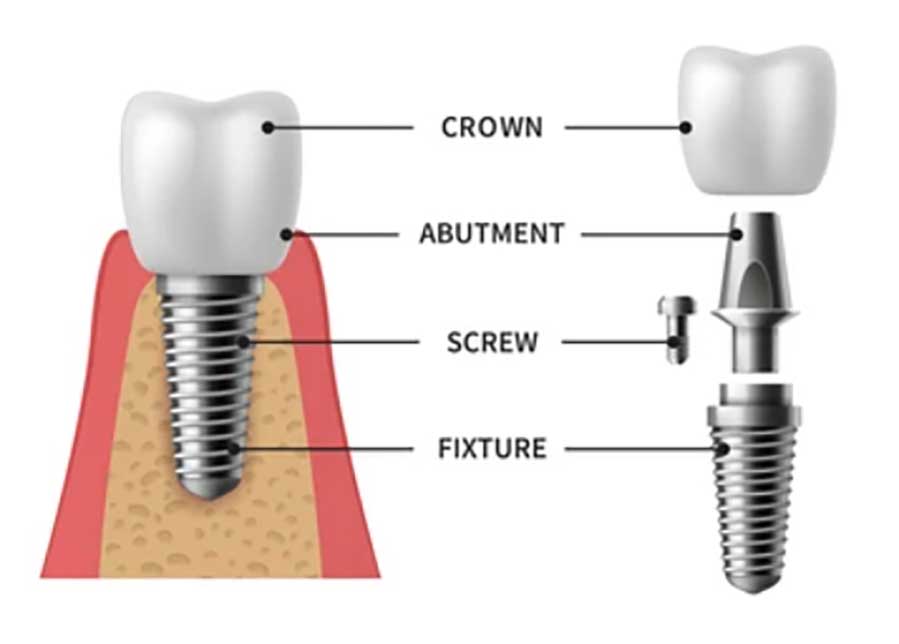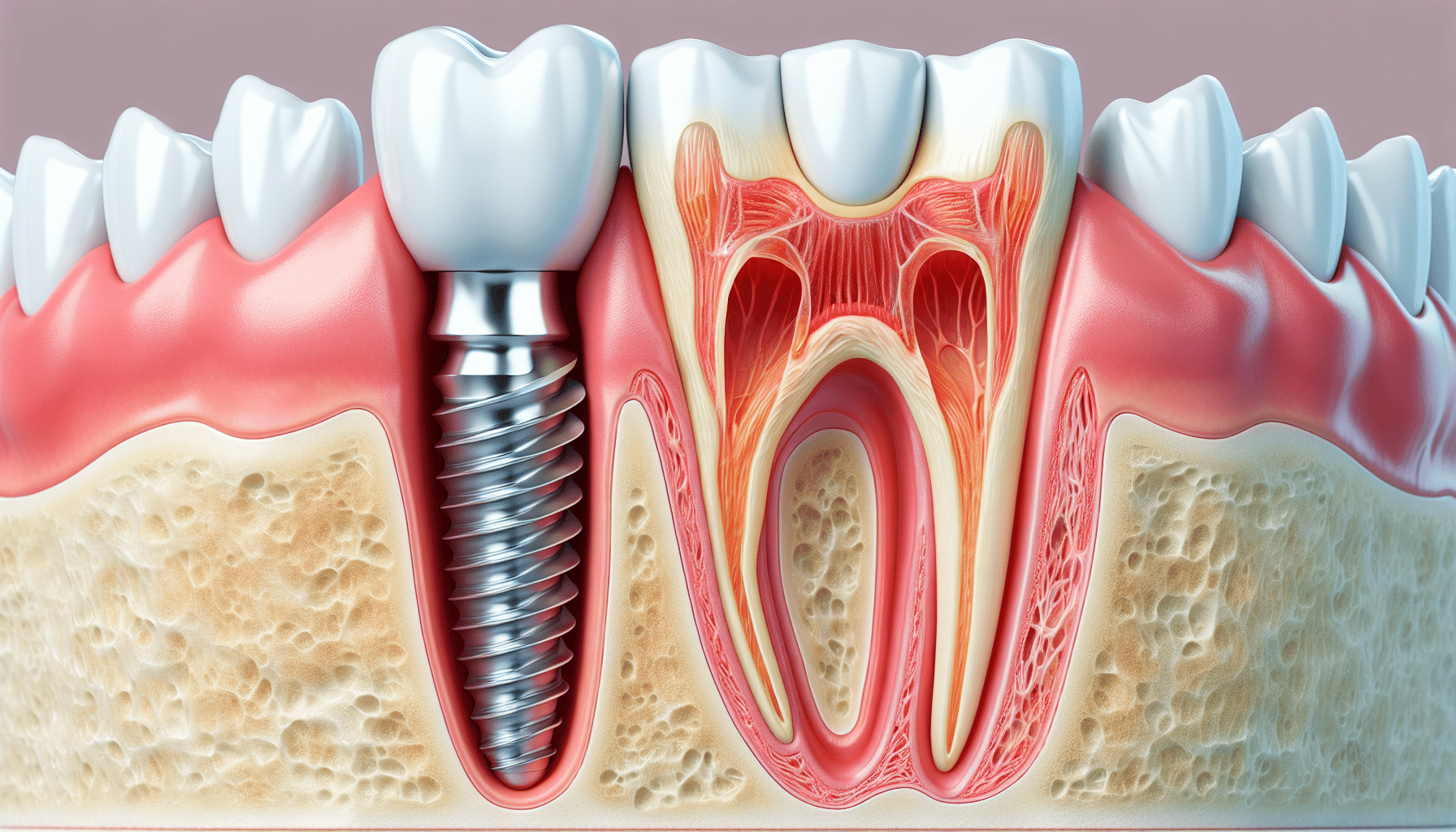Dental Implants Galena OH Dental Implants: Options, Costs, and Care
Dental Implants Galena OH Dental Implants: Options, Costs, and Care
Blog Article
Dental Center Granville OH The Advantages, Risks, and Insurance for Dental Implants
Dental implants have emerged as a well-liked alternative for individuals looking for a long-term resolution to tooth loss. One essential side of understanding dental implants involves their effect on adjacent teeth. This is particularly necessary for ensuring the health and longevity of the complete dental structure.
When a dental implant is placed, it mimics the function of a natural tooth root. By doing so, it helps keep the integrity of the encircling bone structure. Natural teeth rely on a balanced, interconnected system for support, and dental implants can contribute positively to that dynamic. The stability supplied by the implant allows for higher distribution of chew forces, which might prevent undue stress on adjacent teeth.
Dentists Alexandria OH Dental Implant Procedures
In cases where a tooth is missing, the neighboring teeth might shift into the vacant space. This shifting can lead to misalignment and varied different problems. By putting a dental implant, the chance of this shifting is reduced, as the implant acts as a placeholder that preserves the natural alignment of surrounding teeth. This preventive effect is essential for long-term oral health and function.
Another essential consideration is bone loss. When a tooth is misplaced, the jawbone in the space can start to deteriorate due to a scarcity of stimulation. Dental implants assist prevent this bone loss by offering the mandatory stimulation to the jawbone, very like a natural tooth root would. This preservation of bone not only helps the implant itself but additionally contributes to the stability of adjacent teeth.
The kind of material used in dental implants, usually titanium, has a unique property of osseointegration, that means it fuses with the bone over time. This integration provides a sturdy basis for the artificial tooth while guaranteeing that the implant doesn’t negatively have an effect on surrounding structures. As the implant integrates, it creates an setting that contributes positively to the health of the adjacent teeth.

Regular dental check-ups play an essential position in monitoring the impression of dental implants on adjacent teeth. Professional assessments can help establish any points which will arise, ensuring prompt therapy and sustaining the health of the entire dental arch. These evaluations may include X-rays to examine for bone density and the general condition of the implant and surrounding teeth.
Johnstown Dental Columbus OH Understanding Dental Implants: A Comprehensive Guide
Oral hygiene practices are important for individuals with dental implants. Proper brushing and flossing habits not solely contribute to the longevity of the implant but also be positive that adjacent teeth stay healthy. Food particles and plaque that accumulate around the implant may cause problems, together with peri-implantitis, an inflammatory condition that may have an result on surrounding teeth and tissues.
The positioning of dental implants can influence the health of adjacent teeth. If an implant is placed at an angle or not correctly aligned, it might lead to elevated strain on neighboring teeth. This misalignment might cause put on and tear on adjacent enamel, potentially resulting in cavities or different dental issues. Therefore, the ability and experience of the dentist performing the implant procedure are paramount in attaining a successful consequence.
In some cases, further procedures could also be necessary to arrange the encircling area for an implant. Bone grafting or sinus lifts can help create a greater surroundings for the implant. While these procedures are aimed toward enhancing the site for the implant, in addition they serve to protect the health of adjacent teeth by creating a extra secure foundation.
Dentist Office Sunbury OH Common Dental Implant Problems and How to Avoid Them

As dental know-how evolves, developments in implant methods lead to better outcomes. Improved imaging strategies and computer-aided design enable for extra exact placements that minimize risk to adjacent teeth. With these developments, the likelihood of issues that would arise from improperly placed implants diminishes considerably.
Post-operative care also performs a important function in guaranteeing that adjacent teeth stay unaffected. Patients should adhere to the dentist's instructions concerning food regimen, oral hygiene, and follow-up visits. Neglecting these pointers might result in complications that impression not only the implant but in addition the neighboring teeth.
Dental Clinic Condit OH Types of Dental Implants
In conclusion, dental implants, when placed correctly and cared for correctly, have the potential to reinforce the health of adjacent teeth quite than detract from it. They keep alignment, stimulate bone progress, and provide a secure foundation that supports the entire dental structure. Understanding how dental implants have an effect on adjacent teeth emphasizes their importance as a long-term tooth replacement solution. With continuous advancements in expertise and strategies, the combination of dental implants into restorative dentistry is changing into more and more profitable, making certain healthy and functional smiles for years to come.

- Dental implants prevent adjacent teeth from shifting into the hole created by a missing tooth, helping to maintain proper alignment in the mouth.
- The rebuilding of the jawbone via an implant can stimulate surrounding teeth and hold them healthy by providing essential bone density that might otherwise diminish.
- Adjacent teeth benefit from the stabilization that dental implants present, lowering the chance of damage and tear from misalignment throughout chewing.
- Implants can protect adjacent teeth by acting as a framework, which may distribute bite forces evenly throughout the dental arch as an alternative of inserting undue stress on neighboring teeth.
- When placed appropriately, dental implants minimize the risk of gum disease which might affect adjacent teeth by maintaining a clear and healthy gum line.
- The presence of an implant can facilitate an improved oral hygiene routine, because it eliminates the need for bridgework that would lure meals particles around adjacent teeth.
- Regular dental check-ups can reveal how nicely the implant integrates with surrounding buildings, ensuring ongoing health for adjacent teeth.
- Implants can prevent the natural process of bone resorption that happens after tooth loss, positively impacting the stability and longevity of adjacent teeth.
- The use of dental implants might scale back the need for more invasive procedures sooner or later, offering a long-term resolution that maintains the structure of the entire dental arch.
- Successful integration of an implant into the dental arch enhances overall oral operate, usually resulting in improved confidence and oral health for adjacent teeth.undefinedHow do dental implants have an effect on adjacent teeth?
What influence do dental implants have on the alignment of adjacent teeth?
Dental implants generally prevent the shifting of adjacent teeth, helping to hold up proper alignment. This stability can scale back the chance of growing chunk issues over time.
Can dental view website implants trigger damage to nearby teeth?
When positioned appropriately by a certified professional, dental implants mustn't damage adjacent teeth - Dentist Sunbury OH. However, improper placement or inadequate planning might lead to problems
Smile Care New Albany OH Dental Implants for Seniors: Considerations and Benefits
Do dental implants require any special care regarding adjacent teeth?
Maintaining good oral hygiene is crucial. Surrounding teeth ought to be brushed and flossed regularly, and routine dental check-ups will assist make positive that each the implants and adjacent teeth remain healthy.

Will dental implants influence the health of my surrounding teeth?
Dental implants can enhance the health of surrounding teeth by distributing chew forces evenly, lowering wear and tear. Additionally, they can prevent bone loss within the jaw, which can have an result on adjacent teeth.
Family Dental Clinic Galena OH The Benefits of Dental Implants: Why Choose Them?
Are there any long-term results of dental implants on nearby teeth?
Long-term, dental implants may help preserve the health of adjacent teeth by stopping shifting and potential gum points, ultimately contributing to higher oral health overall. - Mono Implants Centerburg OH
Can gum problems come click this site up around adjacent teeth after getting implants?
If correct dental care is uncared for, gum points might develop around each the implants and adjacent teeth. Following post-operative care directions is crucial to reduce these risks.
Johnstown Dental Columbus OH Affordable Dental Implants: A Guide
How do dental implants evaluate to bridges by means of go adjacent teeth?
Dental implants are typically helpful as they don’t require alteration of adjacent teeth, not like bridges, which necessitate reshaping of nearby teeth for help. (Family Dental Clinic Galena OH)
Can I still get cavities in adjacent teeth if I actually have dental implants?
Yes, adjacent teeth can still develop cavities if not properly cared for. Dental implants themselves can't get cavities, but they require vigilant hygiene practices to protect surrounding natural teeth.
What is the success rate of dental implants in relation to surrounding teeth?
The success rate of dental implants is high, however it largely is decided by the standard of the process and ongoing care. Well-maintained implants usually result in higher outcomes for adjacent teeth as nicely.